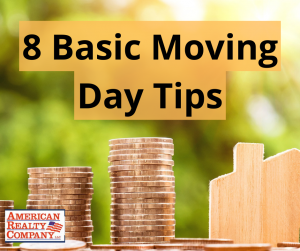Are you in the market to buy a new home? Whether you’re a first-time homebuyer or you’re ready to move up to your dream home, it’s important to be prepared before you start looking. By following these simple steps, you can make the process easier and less stressful. Keep reading for our top tips on how to buy a home!
First Time HomeBuyers
If you’re a first time homebuyer, there are a few things you need to know. One of the most important is that there are different types of loans available to you. The federal housing administration (FHA) loan is one of the most popular, and it’s available to borrowers with a down payment as low as 3.
Calculate how much house you can afford
One of the most important things you can do before you start looking for a home is to calculate how much house you can afford. You’ll need to know your credit score, your income, and your monthly debts in order to come up with a realistic number. There are plenty of online calculators that can help you with this process.
Buying in this Market
There are lots of would-be homeowners right now who wish to time the housing market and wait for property values to decline. The problem, however, is that even professionals struggle to get it right.
The downside to waiting for prices to fall is that you risk mortgage rates rising, and one thing we know for sure right now is that mortgage rates are at a record low.
Get your finances in order
In order to buy a home, you need to have your credit in order and check your credit report. That means paying off any credit card or medical debt that may be hanging over your head. If you have credit cards with a high balance, make a plan to pay them down as much as you can before applying for a mortgage. It’s also important not to open any credit card accounts or take out any loans in the lead up to your home purchase. Doing so can lower your credit score, which could affect your ability to get a mortgage. So you’ll definitely want to get a credit report.
Make a plan for the down payment
In general, you’ll need a down payment of at least 5% of the home value you want to buy. Some buyers may be able to get a minimum down payment as low as 3%. Keep in mind that if your downpayment is less than 20%, you may have to buy private mortgage insurance (PMI).
PMI
In general, PMI protects the lender in case you default on your mortgage. You’ll have to pay a monthly premium for mortgage insurance until you’ve paid off 20% of your home loan balance.
The home loan process is different for everyone, but it always starts with an approval letter from a mortgage lender. This letter will detail how much money you can borrow and what mortgage terms you’re eligible for.
Find the right mortgage for you
When you get your mortgage approval letter, you’ll need to find a mortgage that works for you. You can choose fixed or variable mortgage rates and choose whether you want a 15-year or 30-year mortgage term. You’ll also need to decide if you want to pay Points (an up-front fee that lowers your interest rate).
Get pre-approved for a mortgage
Once you’ve found the right mortgage, you’ll need to get pre-approved. This means the lender has looked at your credit score and income and has said that you’re approved for a specific home loan amount. Pre-approval is not a commitment to lend you money, but it does show sellers that you’re a serious buyer.
Find a real estate agent
When you’re ready to start looking at homes, it’s important to find a real estate agent. You can search for a real estate agent in your area here . Once you’ve found someone you like, give them all the information they ask for and set up time for them to show you around different properties.
If you have questions about buying a house, it’s important to talk to your real estate agent or mortgage lender. They can help you sort through all of the information and make sure you’re ready to buy a house.
Get a Home Inspection
One of the most important steps in the home-buying process is getting a home inspection. A home inspector will check to make sure the property is in good condition and look for any potential problems with the house. If you’re buying a home that is a fixer-upper, it’s especially important to get a home inspection to make sure you know what you’re getting into.
Calculate property tax payments
Let’s assume the selling price of the home you are buying is valued at $100,000 and a tax rate of 1 percent. If your county tax rate is 1%, you’ll pay $1,000 in property taxes each year—or $83 per month, which is included in your mortgage payment. But we’ll get into that later.
Assessed Value
Here’s a common blunder made by lots of people: The assessed value is not the same as the house’s market or sell price, which is known as the “appraised” or “market” value. Your local government’s tax assessor determines your property’s assessed value, which is typically lower than the market value. That’s excellent in some cases because you’ll pay less in taxes that way, but in others it can be an insult.
Property Tax Rate
The amount you pay in property taxes is determined by the local government where you reside. For example, a home in Russellville, Alabama will pay a different rate than a home in the Atlanta metropolitan area.
To provide you a broad view, homeowners in 2017 paid an average of $3,399 in property taxes at an average tax rate of 1.17%. Homeowners in New Jersey (2.28%), Illinois (2.22%) and Vermont (2.19%) had the highest average property tax rates in the nation while homes in Hawaii (0.34%), Alabama (0.49%) and Colorado (0.51%) enjoyed the lowest rates.
It’s also critical to note that rates aren’t set in stone. Tax increases and property reappraisals might cause your tax obligation to vary from year to year, so stay current on your payments to avoid getting caught off guard by a larger tax debt!
Get Homeowners Insurance
After you buying a home, you’ll need to make sure it’s protected with home insurance. You can get an idea of how much your homeowner’s insurance will cost by using our calculator . It’s important to be honest about where your house is located and what type of renovations you’ve done because that could affect your rates.
Closing Costs
When you buying a home, there are also closing costs to consider. These costs include the fees for the home inspector, lender, and real estate agent. You’ll also have to pay for title insurance, which protects you from any legal problems with the property title. Closing costs typically range from 2-5% of the home’s value.
Monthly Mortgage Payments
You’ll need to know the purchase price if you’re buying a home. This is an important consideration when calculating monthly mortgage payments. The monthly payment includes principle, interest, property taxes, and homeowners insurance. Many lenders require you to escrow for insurance and property taxes, which means that the monthly payment will be higher because it includes payments to those accounts.
Final Thoughts
Real estate is a big decision. Invest in your future by getting the help of an experienced real estate agent and home inspector to find you exactly what you’re looking for. You can only buy once, so it pays to do your homework before buying! If this sounds like something you want to invest in now, contact us today for more information on how we can work with you as your partner throughout the process. Our team will be there every step of the way until closing day-worry free!





